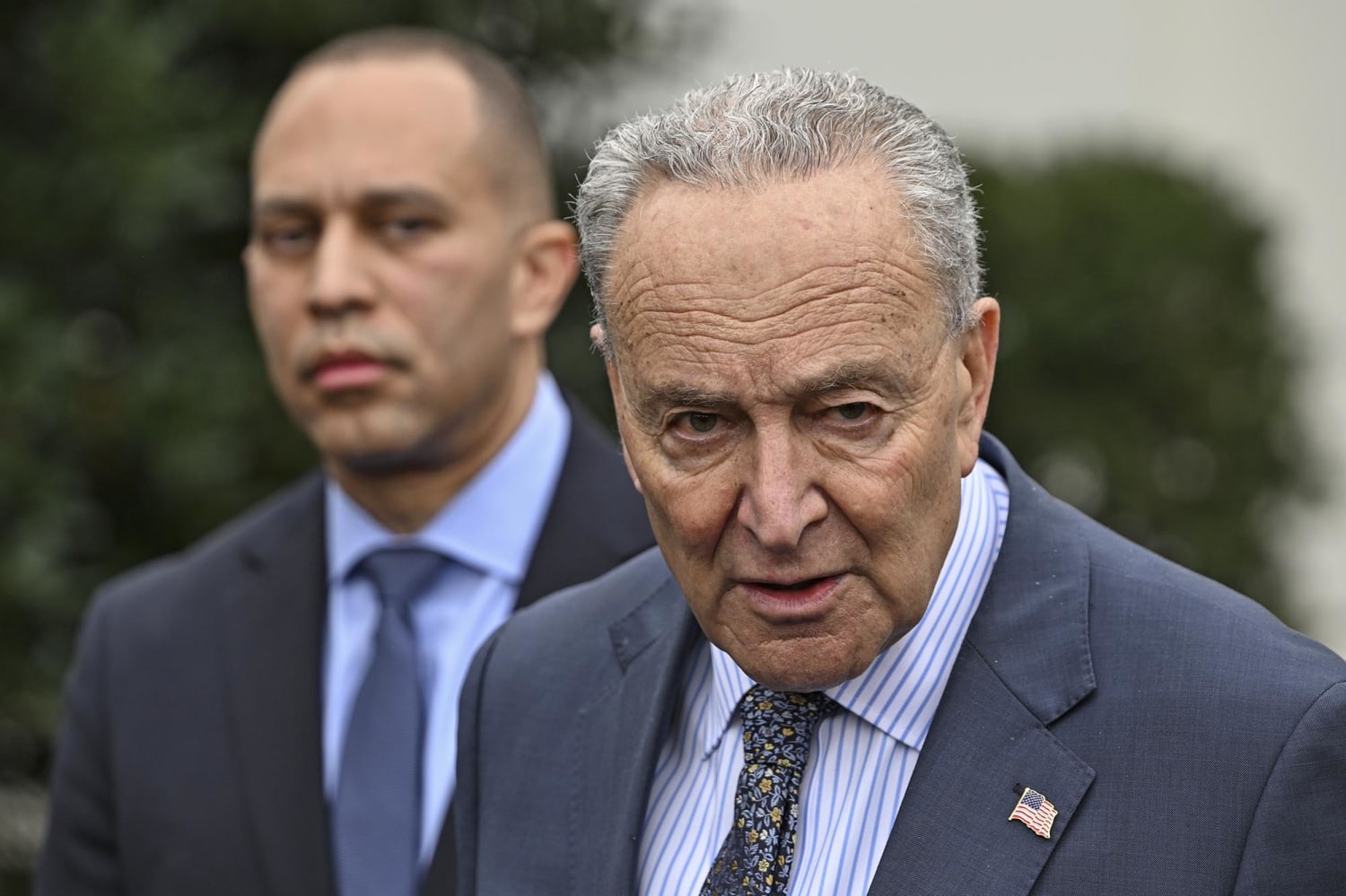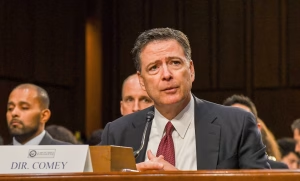As Washington continues to assess the political fallout from the longest federal government shutdown in American history, new Engagious/Sago focus groups conducted in Georgia reveal that swing voters are expressing frustration—particularly toward Democrats—for how the standoff unfolded and ultimately ended. The 41-day shutdown, which concluded only after Democrats agreed to reopen the government without securing the health-care commitments they publicly insisted on, has become a flashpoint among voters who previously shifted their support between parties in recent election cycles.
The findings, published by Axios, offer a glimpse into how a specific segment of politically decisive voters is interpreting the shutdown’s resolution. While focus groups are not scientific polls, they provide qualitative insight into voter psychology and emotional reactions—elements that often drive real-world election outcomes.
A Sense of Disappointment Among Former Biden Voters
The Georgia panel consisted of thirteen voters who supported Joe Biden in 2020 but then backed Donald Trump in 2024—a bloc often described by political strategists as “Biden-to-Trump swing voters.” Their reactions to the shutdown were far from unified, but one trend stood out: disappointment with how Democratic leaders navigated the situation.
Seven of the thirteen voters said they believed Democrats emerged looking worse than Republicans after the shutdown. Two said Republicans looked worse, and four said both parties were equally responsible. The overall sentiment skewed toward frustration with the Democratic strategy, which they felt accomplished little while causing widespread financial disruptions for government workers and families who rely on federal programs.
One participant, Trilya M., 53, of Loganville, criticized the party’s decision to end the shutdown without achieving tangible results:
“They gave in to the Republicans. They did not stand their ground with them, and now it’s going to affect the people that have the Affordable Care Act.”
Another voter, Christine L., 54, of Peachtree City, echoed that sense of futility:
“It was for what? It really does make them look bad.”
Several voters expressed that, while they do expect Democrats to fight for social safety-net issues—such as health-care affordability—they felt the party overplayed its hand during the shutdown. These voters described the Democratic strategy as politically motivated but ultimately ineffective.
Elijah T., 33, of Conyers, offered a sharper critique of the party’s messaging versus its actions:
“They always project to be a party of the people they care about—the disenfranchised, the people who are in poverty … but their actions contradict it. They don’t really care.”
Meanwhile, Brian B., 61, of Norcross, argued that Democratic leadership prolonged the standoff before conceding:
“Chuck Schumer and Hakeem Jeffries beat the heck out of this and wasted 41 days dragging their feet before eight Democrats finally decided enough is enough.”
Collectively, these comments suggest a sense of betrayal among some swing voters who once believed Democrats would be stronger defenders of health-care benefits for middle- and lower-income Americans.
Democrats’ Shutdown Strategy Sparks Broader Distrust
Rich Thau, president of Engagious and moderator of the focus groups, told Axios that Democrats may have unintentionally weakened their standing among voters who were already skeptical.
“Democrats gave swing voters—who already hold the party in profoundly low esteem—yet another reason to mistrust them,” Thau said.
This mistrust appears rooted in the perception that the shutdown failed to produce meaningful policy progress. The stated goal of Democratic leaders had been to secure a one-year extension of Affordable Care Act subsidies originally expanded during the COVID-19 era. Those subsidies are scheduled to expire because of prior legislation passed in 2021.
But when the shutdown ended, Democrats did not secure a firm agreement from Republicans on renewing the subsidies, sending mixed signals to some of their own former voters.
Mixed Reactions to President Trump’s Leadership
Though the shutdown was widely viewed as a partisan stalemate, eight of the thirteen swing voters told moderators they approve of President Trump’s overall performance since returning to office in January.
Those who expressed disapproval cited specific concerns, including:
-
persistent inflation
-
elevated food prices
-
uncertainty in the job market
-
aggressive immigration enforcement
-
a belief the administration has sometimes lacked seriousness in its execution of policy
Notably, participants were not uniformly supportive of the administration’s approach, but the majority signaled that Trump’s handling of the shutdown did not significantly damage their opinion of his leadership.
Awareness of Recent Democratic Local Wins
The focus groups also revealed that eleven of the thirteen voters were aware of Democrats’ recent off-year election successes in states such as Virginia, New Jersey, and Pennsylvania, along with local victories in highly Democratic jurisdictions like parts of California and New York City.
But these local wins did not appear to change participants’ broader frustrations with the national party.
When asked what Republicans should learn from Democrats’ off-year victories, the voters suggested:
-
increasing campaign spending
-
appealing more to moderate and independent voters
-
staying alert and engaged
-
focusing on practical voter concerns rather than political theater
Conversely, their advice for Democrats reflected a call for restraint and authenticity:
-
“Don’t go too woke.”
-
“Follow through with your promises.”
-
“Special elections aren’t always indicators.”
These responses indicate that voters are closely watching both parties but are increasingly impatient with rhetoric that does not translate into practical outcomes.
Strong Support for Age Limits on Presidential Candidates
An additional question asked participants whether they support a constitutional amendment establishing an upper age limit for future U.S. presidential candidates. Ten of the thirteen voters said they supported such a measure, with most suggesting a limit between 65 and 75 years old.
The issue of age in politics has been widely debated in recent years as multiple presidential contenders have been in their late seventies or early eighties while seeking office.
Editorial Reaction Highlights Democratic Disappointment
A New York Post editorial this week echoed some of the frustration expressed by the Georgia swing voters. The editorial argued that the Democratic leadership kept the shutdown going largely to satisfy pressure from left-wing activists who wanted a symbolic show of resistance to President Trump.
The editorial argued that Democrats “pointlessly kept the government shut down for 41 days” and ultimately abandoned their stated objective of making the Republican majority renew expiring ACA subsidies. Because those subsidies were originally written to expire under Democratic-crafted legislation, the editorial stated that the shutdown strategy left many rank-and-file Democrats feeling confused and disheartened.
What the Findings Suggest Moving Forward
Taken together, the focus group feedback points to a broader political challenge for Democrats: maintaining the trust of voters who supported Biden in 2020 but shifted to Trump in 2024. These voters remain open-minded in some respects, but many are clearly losing patience with strategies they view as symbolic, ineffective, or disconnected from their economic concerns.
For Republicans, the insights suggest opportunities among swing-state moderates—but also potential risks, as the same voters who criticized Democrats also expressed concerns about inflation, immigration, and general governance under Trump.
As the shutdown fades into the rearview mirror, both parties may face pressure to show more tangible results on issues such as health-care costs, economic stability, and public safety.

Emily Johnson is a critically acclaimed essayist and novelist known for her thought-provoking works centered on feminism, women’s rights, and modern relationships. Born and raised in Portland, Oregon, Emily grew up with a deep love of books, often spending her afternoons at her local library. She went on to study literature and gender studies at UCLA, where she became deeply involved in activism and began publishing essays in campus journals. Her debut essay collection, Voices Unbound, struck a chord with readers nationwide for its fearless exploration of gender dynamics, identity, and the challenges faced by women in contemporary society. Emily later transitioned into fiction, writing novels that balance compelling storytelling with social commentary. Her protagonists are often strong, multidimensional women navigating love, ambition, and the struggles of everyday life, making her a favorite among readers who crave authentic, relatable narratives. Critics praise her ability to merge personal intimacy with universal themes. Off the page, Emily is an advocate for women in publishing, leading workshops that encourage young female writers to embrace their voices. She lives in Seattle with her partner and two rescue cats, where she continues to write, teach, and inspire a new generation of storytellers.









